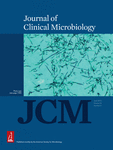 Here’s a case of retraction being a hammer when a scalpel might have been better.
Here’s a case of retraction being a hammer when a scalpel might have been better.
The authors of a 2011 paper in the Journal of Clinical Microbiology looking at transmission of hepatitis C in a former leper colony in Japan have retracted the article because an ethics panel in that country objected to the scientists’ use of fetal tissue.
The article involves a controversial aspect of modern Japanese history — the country’s efforts to eradicate leprosy, or Hansen’s disease, by isolating patients in a string of state-run sanatoriums. The policy was eventually realized to be unnecessary and ruled unconstitutional in 2001, triggering a wave of apologies to patients and their families.
The paper, “Molecular Epidemiology of a Hepatitis C Virus Outbreak in a Leprosy Sanatorium in Japan,” reported on an outbreak of Hep C at National Sanatorium Oku-Komyo-En, one of 13 such facilities. According to the researchers, the sanatorium, on a small island, was plagued by a surge in Hep C infections that lasted from 1940 to 1999. Hep C causes cirrhosis and liver cancer, and rates of those two diseases also spiked during that period.
The Japanese researchers wanted to see how patients in the colony were contracting Hep C, which generally passes from person to person by sexual contact, or the sharing of contaminated needles and other items. Their theory was that the route of transmission was nosocomial — in other words, health care workers on the island were infecting patients through cross-contamination.
And they appeared to be correct. As the authors wrote:
Most of the patients in the sanatorium had received regular intravenous drugs for treatment of pain and subcutaneous injection of chaulmoogra oil for the treatment of leprosy using nondisposable syringes and needles. Furthermore, leprosy is a dermatological disease, and patients’ skin was cared for with reusable sharpeners and bandages. Thus, there were many chances for staff and patients to come into contact with blood without adequate sterilization.
None of that appears to be in dispute. What is in question, however, is whether the researchers had — as they seem to have believed — ethics approval for their work.
According to the retraction notice:
We are retracting our manuscript at the request of the Ethics Committee of the National Sanatorium Oku-Komyo-En.
Our study was initiated in August 2005. Dr. Masanao Makino, the president of the Sanatorium and coauthor of our studies, requested analysis of formalin-stored autopsy material. In September 2006, Dr. Makino further tasked our group to sample internal organs from a total of 14 fetuses for histological and histochemical evaluation. The Hansen’s Disease Study Council of March 2005 allowed for the pathological examination of autopsied material upon receipt of permission from the President of the Sanatorium. Thus, we are confident that our research complied with the regulations in place at that time.
Following a presentation at the 85th Meeting of the Japanese Leprosy Association, the Patients’ Council became aware that fetal material had been examined in addition to adult autopsy materials. The President and Vice President of the Patient’s Council reviewed the manuscripts and stated that no permission had been provided by the Patients’ Council for the use of fetal tissues. Subsequently, in April 2014, the Patients’ Council requested that we halt our research and return all materials, including more than 800 adult specimens, to the Sanatorium. The Ethics Committee of the National Sanatorium Oku-Komyo-En convened in January 2015 and canceled the previous approval of our research. The cancelation of the approval is considered retroactive, and we were strongly advised to retract this publication.
Thus, we regretfully retract our article, although we stand by the science and importance of the paper. We sincerely apologize for any inconvenience to the readers.
Now, we strongly agree with editors and journals who feel that lack of ethics oversight can be grounds for retraction, but this case strikes us as awfully muddy.
The retraction notice (taken at face value, of course) indicates that the authors made a good faith effort to obtain approval for the tissue samples they analyzed — approval they had reason to believe they’d received.
It’s also not entirely clear how much the data from fetal tissue influenced the paper — which doesn’t even contain the words “fetus” or “fetal.”
We think a correction or expression of concern might have been a more appropriate step here, but Alexander McAdam, the editor of the JCM, said retraction was the right step:
I think a retraction is appropriate in this case. The Instructions to Authors for the Journal of Clinical Microbiology say that “Retractions are reserved for major errors or breaches of ethics that, for example, may call into question the source of the data or the validity of the results and conclusions of an article.” As described in the retraction, the leadership of the Patient’s Council concluded that the permission had not been granted for use of some tissues in the study, and the institutional Ethics Committee determined that concern was great enough to cancel approval for the research. I think this is a breach of ethics that calls into question the source of the data because needed consent was not obtained for the use of human tissues.
And McAdam said he was comfortable with the retroactive nature of the ethics review:
To me, it is significant that a currently standing committee with ethics oversight, the Ethics Committee of the National Sanatorium Oku-Komyo-En, concluded that retroactive cancellation of approval was required based on concerns raised by the patients’ representatives. I think that is adequate reason for retraction based on the JCM Instructions to Authors and on my concerns described in the earlier email.
Like Retraction Watch? Consider supporting our growth. You can also follow us on Twitter, like us on Facebook, add us to your RSS reader, and sign up on our homepage for an email every time there’s a new post.